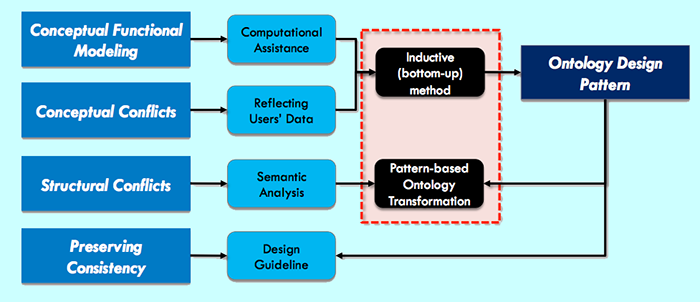
Computer Science and Electrical Engineering
University of Maryland, Baltimore County
Ph.D. Dissertation Proposal
Functional Reference Ontology Development: a Design Pattern Approach
Yunsu Lee
1:00pm Friday, January 10, 2014, ITE325b, UMBC
The next generation of smart manufacturing systems will be developed by composing advanced manufacturing components and IT services introducing new technologies. These new technologies can lead to dramatic improvements in the ability to monitor, control, and optimize all aspects of manufacturing. The ability to compose advanced manufacturing components and IT services enhances agility, resiliency, and productivity of a manufacturing system. In order to make the composition possible, functional knowledge of manufacturing components and IT services should be captured and shared explicitly. Recent researches have shown that a semantically precise and rich reference functional ontology enables effective composition. However, since domains of factories and production networks are large, evolving, and heterogeneous, developing a reference functional ontology is a challenging task. Specifically, conceptual functionality modeling that characterizes various features of manufacturing components and IT services at different levels of abstraction is a difficult task. Even if the reference functional ontology is developed successfully, there will certainly be interoperability issues between the reference functional ontology and local proprietary information models. Firstly, the conceptual conflict issues may arise primarily from the fact that the reference functional ontology does not reflect actual users’ or providers’ conceptualizations. Secondly, structural conflict issues may arise from diverse modeling choices in local, proprietary information models.
The objective of our research is to assess utility of design patterns in addressing the issues in the reference functional ontology development, specifically OWL ontology design patterns (ODPs). To achieve the objective, we will assess inductive approaches to identifying the ODPs, and explore development of a methodology for resolving structural differences between the reference functional ontology and local proprietary information models. The key potential contributions of this work include 1) new method to identify information patterns of functionalities in manufacturing components and IT services, 2) new inductive ODP development process which starts with the pattern definition of the specific functionality concepts, with subsequent grouping of these patterns into more general patterns, and 3) ODP-based ontology transformation to resolve structural conflicts between the reference functional ontology and local proprietary information models.
Committee: Drs. Yun Peng (chair), Tim Finin, Yelena Yesha, Milton Halem, Nenad Ivezic (NIST) and Boonserm Kulvatunyou (NIST)